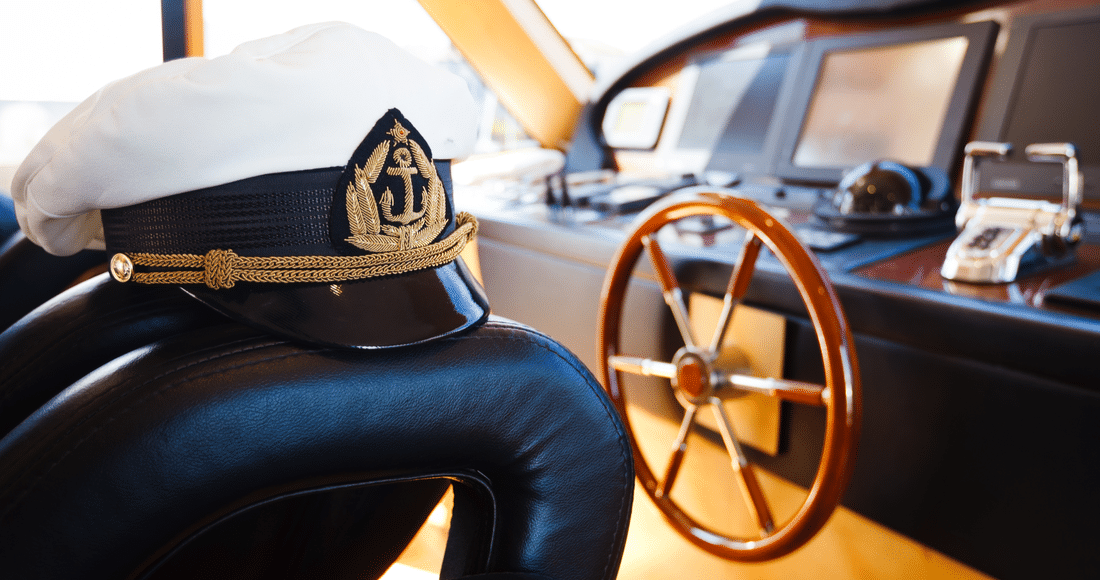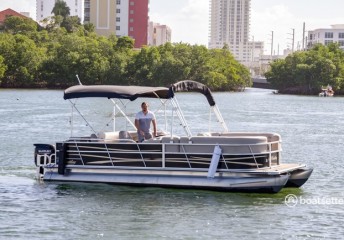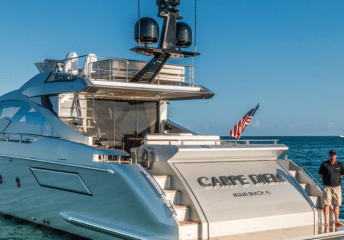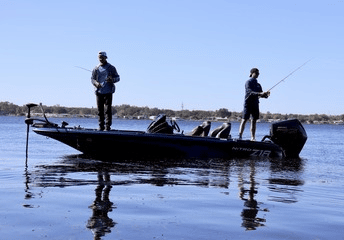Do You Need a Boating License to Drive or Rent a Boat?
Last Updated on October 25, 2024 by Boatsetter Team
When you go out on the water at any time, legality and safety should be your top concerns. In the United States, each state has its own laws and regulations concerning boating requirements and safety. So, when you are getting ready to rent a boat, you need to take that into consideration. While states don’t require recreational boat operators to have licenses, they often require a certificate from a boating safety course.
Boat rentals generally fall under two categories, those with captains and those without. You can always rent a captained boat without a boater certificate and/or license, because you aren’t the one will be operating the boat. You can also rent an un-captained boat without having a boater certificate yourself, but you will probably be required to prove that someone with a certificate will be joining you and driving the boat. This isn’t the case in every state, though, and sometimes it is only a matter of what kind of boat you are taking out.
Post summary:
- A boater certificate
- The captain question
- Keeping it legal, keeping it safe
- Requirements to rent & operate a boat
- What to expect from a boater education certification course
- Stay informed
Find available boat rentals near you—Only at Boatsetter
Do you need a license to drive a boat?
The short answer to that is no, you do not need a license for the recreational use of a boat. What you do need in most states is a boater education card or boater certificate. This is not a license from a technical standpoint because it won’t expire, and you don’t have to renew it. To get one, you have to take and pass a one-time class and, once you have done that, you will have your boater certificate for life!
The class you take must be state-approved at least and, ideally, also approved by the National Association of State Boating Law Administrators (NASBLA). State and NASBLA approval is recognized throughout the United States as the benchmark of legitimacy for a course. These courses often cover the basic operation of boats, boat types, how to navigate, essential knots, relevant legal requirements, handling emergencies, and more.
The captain question
Whether you already have a boating certificate or not, your first consideration for a boat rental should be whether or not you need a captain. If you spend a lot of time on the water, you probably already have a boating safety certificate, already know the waterways, understand the weather, and hopefully have enough skill to avoid trouble. Still, even experienced boaters can benefit from a rental boat with a captain.
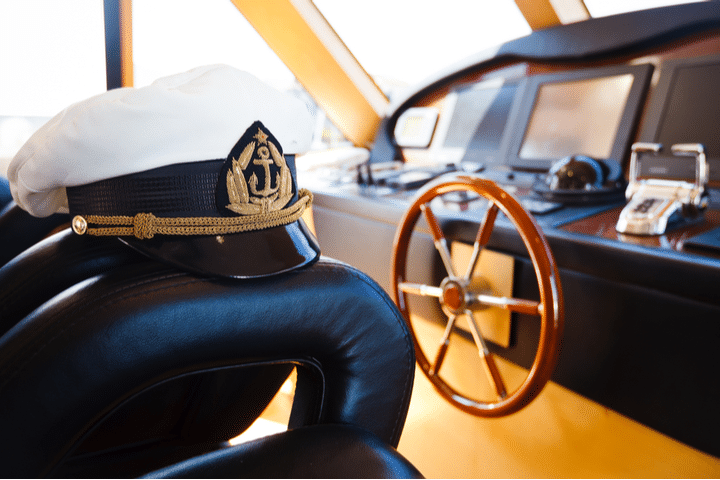
If you don't spend large amounts of time on the water or you just recently got your boating certificate, it would be especially beneficial to have an experienced captain on board. Experienced and inexperienced boat renters alike need to consider a few things. First, why are you going out on the water? If you are heading out for a big fishing trip, doing some diving, or something else that would keep you similarly occupied, you should choose a captained rental.
A rental will always be a boat that you are less familiar with, so it pays to have someone well acquainted with the vessel onboard to control it. Experienced captains can take you to the best diving spots and fishing spots in the area too. Having them on board leaves you to focus on what you need to do while they take care of the boating.
Keeping it legal, keeping it Safe
If you decide that you'd rather have some alone time out on the water or just want to get out with your friends, then you have to do your due diligence and make sure to do it the right way. According to the American Boating Association, out of the average 7,700 boating accidents reported each year, nearly 70% of them are caused by "operator error". Even more concerning, they found that over 80% of recreational boaters involved in fatal accidents had not taken any type of boater education course.
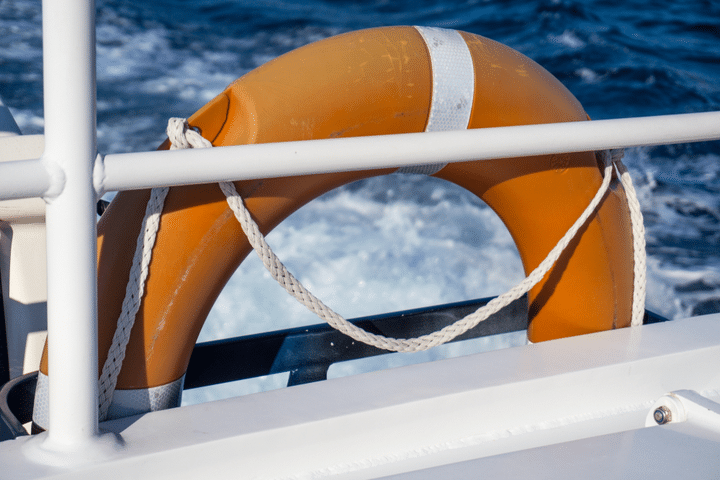
Sometimes boating can look deceptively simple, but like any other heavy, high-speed vehicle, boat education and experience go a long way.
The only way to know for sure what is legal and what is not is to check with the regulations for your state. You can check some great guides to get an idea of the laws, but you should still double-check with a local authority to make sure you are up to date. In Florida, for example, everyone born after January 1, 1988, is required to complete a NASBLA/state-approved boater certification course. In Alaska, however, there are no requirements.
There are minimum age requirements and certification requirements that change from state to state. While checking with your local authorities is always a good idea, the U.S. Coast Guard and the National Association of State Boating Law Administrators (NASBLA) will have up-to-date information on what is required. NASBLA, in particular, offers courses and course certifications, among other resources, to help you find a boater certification course.
What do you need to rent and drive a boat?
Renting a boat is one thing and operating that watercraft is another. To rent a boat, you have to be 18 or older, have a verified rental account, and have a verified form of payment. If you meet those standards, you can usually rent a boat anywhere in the United States. The rental company will still check whether or not you are the boat operator, though. If you intend to operate the boat or bring someone else along to operate the boat, additional requirements are to be met.
For someone to operate the boat, they must meet the state's legal requirements and the insurance requirements of the company renting the boats. For Boatsetter boats under the GEICO Insurance policy: you need to be at least 25 years old, have a verified account, hold a valid passport or driver's license, not have any criminal convictions on record for the past 10 years, not have any major driving violations for the last 3 years, and not have a boat insurance claim in the past 3 years.
In addition to that, you must also comply with your state's boating certificate requirements. You can do this through NASBLA or through the Boat U.S. Foundation, which even offers online courses tailored to the specific needs of each state. The Boat U.S. Foundation is NASBLA approved and state-approved for most of the courses they provide. Most states offer their boater safety course for free!
What to expect from a boater education certificate course
Boater education classes are offered online, and in-person, and the style you choose depends on how you learn best, the amount of free time you have, and what's available in your area. Always make sure you find a course that is both state-approved and NASBLA approved when possible and be sure the course is appropriately designed for your state. There are many similarities to boating courses across the country, but these classes also cover important local laws that you need to know.

The curriculum usually starts by acquainting you with the parts of boats and the different available styles. It will cover the basic operation of each type of vessel, including how to transport the boat in a trailer properly and how to refuel it. You can spend a lifetime learning about boat maintenance and care, but understanding the essentials early on will go a very long way.
These courses are often heavy on instruction in how actually to navigate on the water. This includes the sometimes troublesome skills of casting off and docking. Night navigation and various forms of signaling should also be covered. Learning these methods well will help you stay safe and avoid disaster.
A boater education course should also extensively cover your state's laws about boating. This covers everything from who can operate the boat to protecting the environment around you. You will also learn about the extreme ends of being on the water. This includes emergencies and extreme water sports. Simply being aware of what can happen can help you prevent it, but a good course should have you prepared to respond if something does go wrong.
Stay informed
You need to complete a state-approved and/or NASBLA approved boater education course to operate a boat recreationally in most states. The laws can change, though, and you should always follow the local guidelines so you comply. When you rent a pontoon boat, fishing boat, motor boat, or any other recreational boat, you also have the luxury of hiring a captain.
For most people, this is a great choice. While the captain operates the boat, you can enjoy the water. Regardless of whether you hire someone or complete a boaters education course and pilot the vessel yourself, make sure you stay safe and follow the law.
What to read next: 7 Things to Consider Before Getting Your Captain's License
About us
Boatsetter is a unique boat-sharing platform that gives everyone—whether you own a boat or you’re just renting—the chance to experience life on the water. You can list a boat, book a boat, or make money as a captain.
Rent. List. Share—Only at Boatsetter

Boatsetter empowers people to explore with confidence by showing them a world of possibility on the water. Rent a boat, list your boat, or become a Boatsetter captain today.
